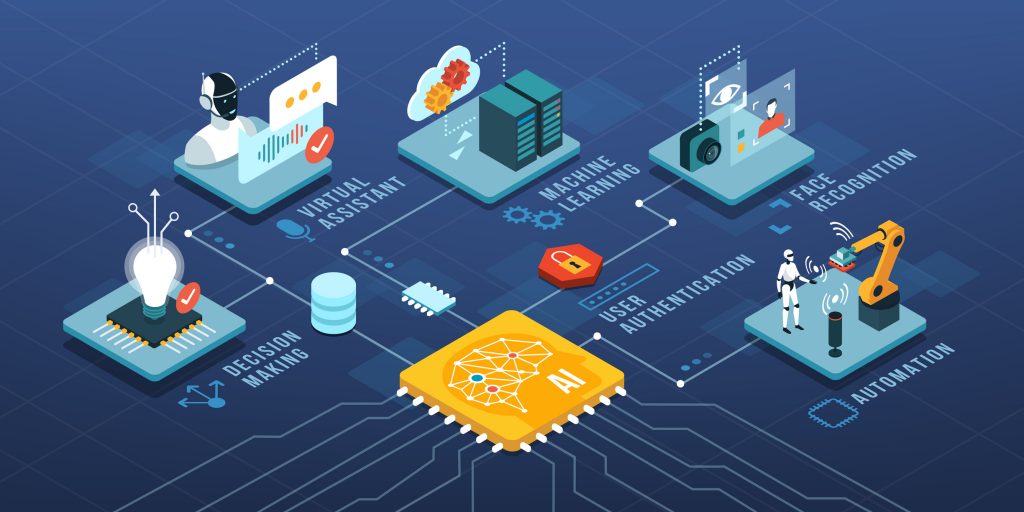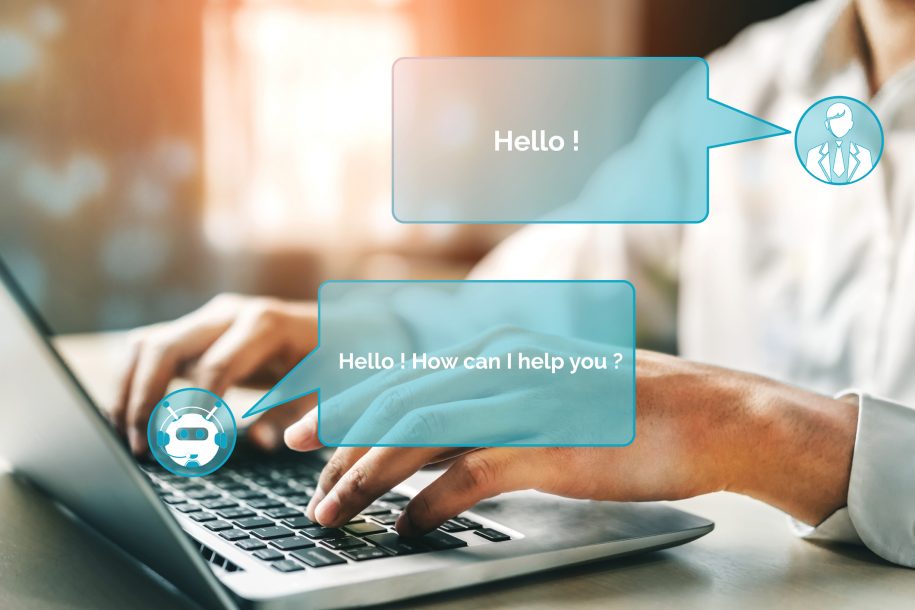How AI virtual assistants and automation can enhance the employee experience and improve business outcomes.
Keeping customers happy and optimizing the customer experience are absolutely crucial parts of running any successful business, and transformative digital technology has the power to help you achieve these goals.
But sometimes, the focus on customers when it comes to implementing new technology results in people overlooking the other crucial stakeholders—employees. And if you don’t get the balance right and also commit resources to optimize the employee experience, then employees’ concerns and wellbeing will take a backseat. This neglect inevitably leads to lower satisfaction, higher turnover, and lower productivity, all of which are bad for business, not to mention bad for your employees.
So how do you improve the employee experience? Well, some of the same technology that can be used to enhance the customer experience can also be applied to employee experience. In this case, we’re talking about AI virtual assistants.
AI-powered virtual assistants, a form of AI chatbots, can be used to automate and improve a massive range of both customer-facing and employee-facing interactions and processes. The effects can be wide-reaching and have transformative effects on the employee experience, leading to improved outcomes and increased employee satisfaction.
In this article, we look at how to improve the employee experience by implementing AI virtual assistants into your operations.
What is an AI virtual assistant?
First things first, let’s look at what AI virtual assistants are and how they work in the context of enhancing the employee experience.
At their most basic level, AI virtual assistants are software platforms designed to help people perform tasks. In general, they are chatbots, accessible via text-based instant messaging. The software is designed to converse with human users in a realistic, natural way to answer questions, provide support, and perform tasks.
The simplest virtual assistants work using a script, with predetermined answers to a set range of queries. This can be helpful in some situations, but obviously, the applications are severely limited. Also, users can quickly become frustrated by the limitations and struggle to get across information they want to.

The inclusion of AI in virtual assistants has changed the game forever. With the help of advanced machine learning algorithms, modern virtual assistants have enhanced functionality. They can understand a greater range of user inputs, provide more relevant responses, and be integrated with IT systems more effectively.
The potential applications of virtual assistants are vast, and they are most commonly deployed in a customer-facing capacity to offer instant, automated support. However, they can also be easily adapted to work in an employee-centric capacity to assist with back-office operations. Some of the main applications are:
- Automatically escalating support tickets to support agents
- Linking disconnected IT systems
- Providing a central hub for employees to access services, documents, and useful information.
- Customer service automation
- Automating important tasks such as customer onboarding, taking payments, submitting documents, answering queries, etc.
So what are some of the benefits that AI virtual assistants can provide to improve the employee experience?
How can AI virtual assistants improve the employee experience?
Eliminating monotonous work
One of the biggest drivers of employee dissatisfaction is being subjected to boring, repetitive, and monotonous work. In most working environments, this means that boring work can lead to lower employee engagement and lower productivity, but the results can be even more serious in certain situations.
One study found that, in the context of healthcare, boredom in the workplace can even lead to an increased rate of errors and adverse patient events.
So it’s clear that, even if your business doesn’t deal with life and death on a daily basis, bored employees are likely to have a negative impact on not just your bottom line, but also the overall wellbeing of your employees.
Fortunately, AI virtual assistants can be deployed in a variety of workplace environments to automate many of the most monotonous tasks employees need to deal with on a daily basis. A good example of this relates to custom support agents. In a call center environment, the majority of interactions are about a handful of issues, making the work very repetitive and, in reality, very boring for most agents.
So, eliminating the bulk of these monotonous tasks can have a dramatic positive impact on employee satisfaction, contributing to an improved employee experience.
Avoiding negative interactions
Another issue with customer-facing roles, such as retail staff, customer support agents, or anything else where one-on-one communication is involved, is the negative interactions that can occur.
Take, for example, a customer support agent who deals with complaints. In a traditional setting, these employees bear the brunt of negative, frustrated, and often aggressive interactions with unsatisfied customers. This can undoubtedly take a toll on the employees’ wellbeing, leading to lower job satisfaction, higher turnover, and lower productivity.
AI virtual assistants can eliminate most of these negative interactions from the equation by automating responses and solutions, making them a hugely effective tool to protect your employees.
More time to focus on what matters
Another benefit of the automation of many basic tasks is that it frees up a lot of time for employees to focus on the most important value-adding tasks that are not just beneficial for the business but beneficial for your employees.
For example, there’s more time for planning and scheduling tasks, which can significantly reduce stress levels. There are also more opportunities for workers to handle the most pressing tasks, leading to better outcomes.
More personalized and fulfilling work
With the removal of many simple tasks, improved integration of services, and enhanced accessibility of information, employees can focus primarily on work that actually challenges them positively.
AI virtual assistants can help to free up mental energy for employees, enabling them to do tasks that require specific skillsets. This can, in turn, lead to a far more fulfilling working environment for those used to handling repetitive tasks in a disconnected way.

A customized virtual assistant for your business
AI virtual assistants, or AI chatbots, can quickly and reliably improve the employee experience. Skil.AI’s virtual assistant—Lisa—is a tailored AI solution that can be integrated into any business for immediate results. Lisa’s powerful features include:
- Omnichannel access (WhatsApp, Messenger, SMS, Email, and more)
- Multi-language support
- Voice detection
- Seamless integration with your existing IT systems
With multinational clients spanning banking, insurance, retail, and a wide range of other industries, Skil can fast-track your digital transformation and facilitate improved operational efficiency, higher productivity, higher employee engagement, and increased employee satisfaction.
Speak to our team today to learn how Lisa could help your business.

